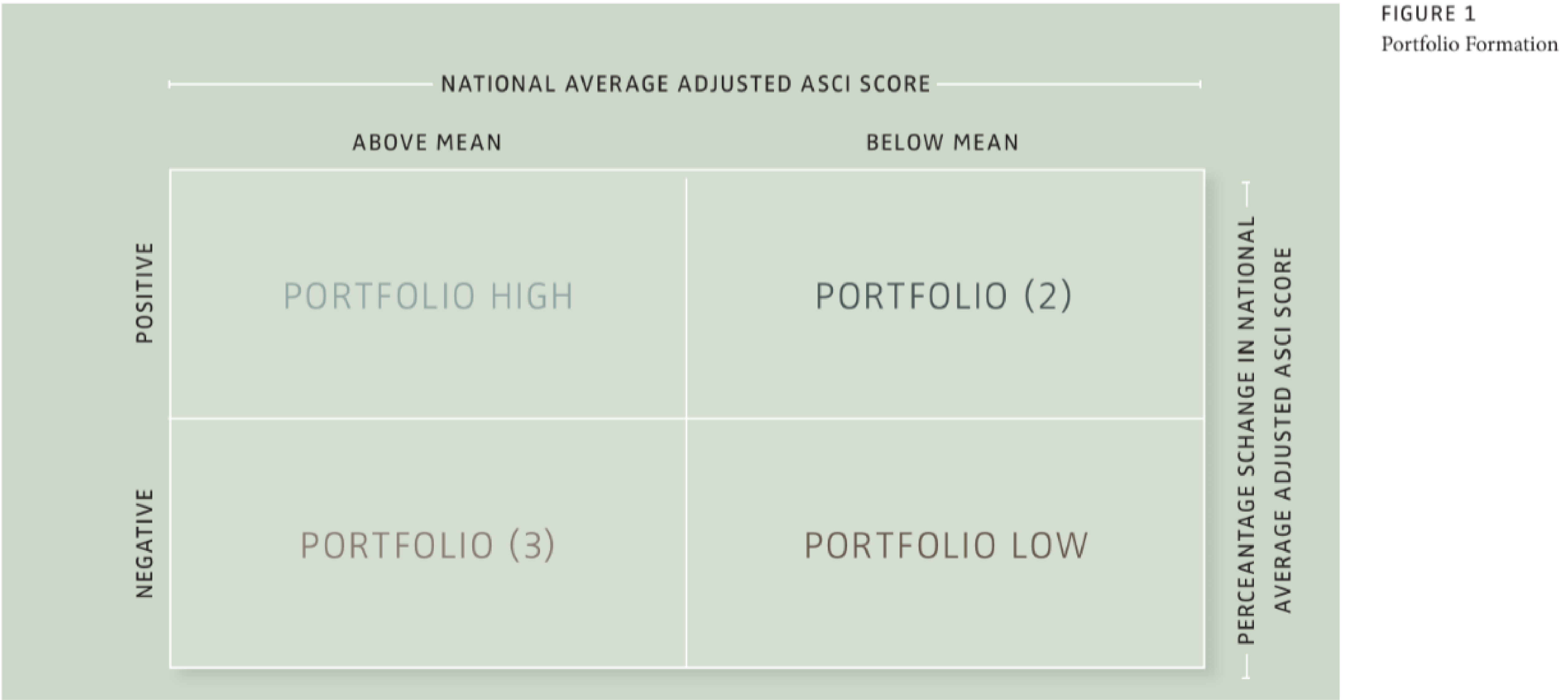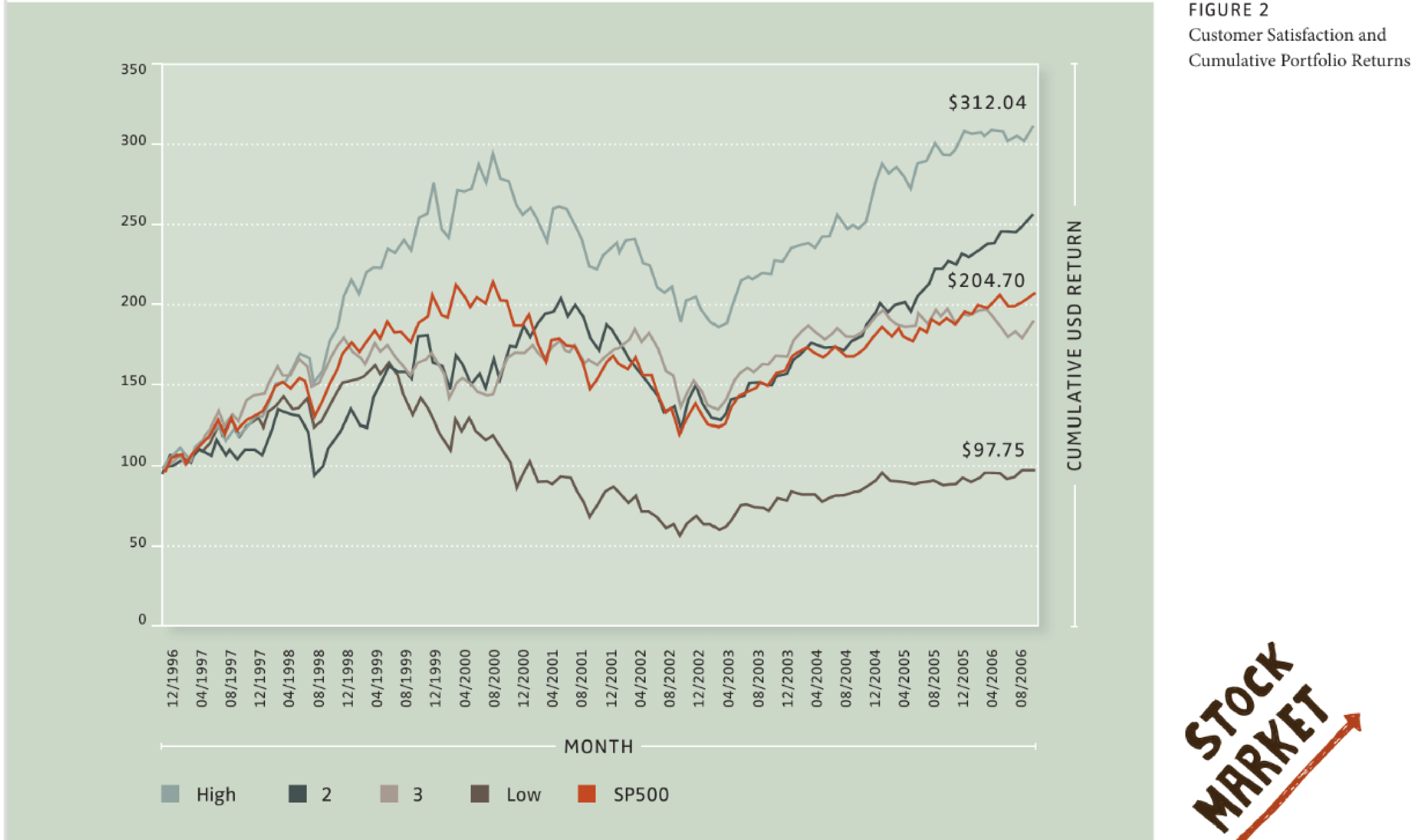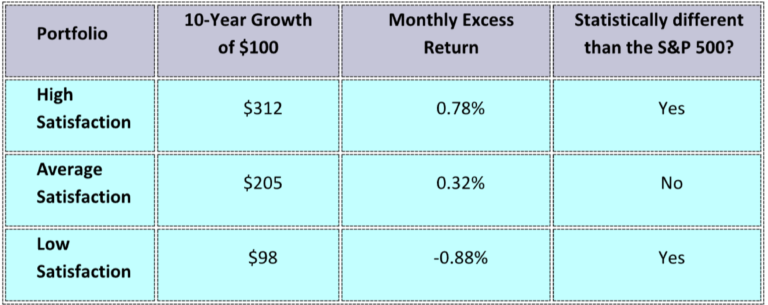Introduction
CEOs, CFOs, and other senior leaders of a company are always searching for the “one metric they should grow” to increase a firm’s stock market value. Over the years, they have relied on fads like net promoter and brand value though their track record of predicting a firm’s financial success has been questioned.
Aksoy and colleagues solve this strategy problem, demonstrating that customer value—as measured by customer satisfaction—is a strong, reliable predictor of a firm’s stock market value. The authors concluded, “High customer satisfaction is an intangible asset that creates shareholder value and yields abnormal returns, even after accounting for risks.”
To draw this conclusion, the authors compared four stock portfolios as shown in Figure 1 and compared their performance to the S&P 500 index. Specially, they compared the absolute level of customer satisfaction and the changes in customer satisfaction over time by forming portfolios of companies based on a company’s customer satisfaction performance over time. This provided a measure of companies with a consistent track record of providing high levels of customer value over time.

Study
- Sample and Sample Size: The research tracked 151 unique publicly traded firms over a 10-year period (1996–2006), drawing on data from the American Customer Satisfaction Index (ACSI) and financial databases like COMPUSTAT. The total dataset included 1,170 monthly portfolio returns.
- Main Measures:
- Customer Satisfaction: Assessed using ACSI, which tracks customer satisfaction for over 200 firms in 43 industries.
- Stock Market Performance: Measured through cumulative portfolio returns and risk-adjusted returns.
Type of Analysis: The study used three financial models—CAPM, Fama-French 3 Factor Model, and Carhart 4 Factor Model—to analyze risk-adjusted returns and isolate the impact of customer satisfaction.
What the Study Showed
Customer value and stock market value are strongly associated with each other as shown in the Figure below.

- High-Satisfaction Firms achieved a cumulative portfolio growth of $312 over 10 years, significantly outperforming the broader market (S&P 500).
- Low-Satisfaction Firms showed a steady decline with a cumulative portfolio value of $98 by the end of the period.
- Average-Satisfaction Firms showed a performance ($205) that is statistically indistinguishable from the S&P 500.
In summary, high satisfaction firms consistently outperform the S&P 500, low satisfaction firms, and average satisfaction firms. These findings are summarized in the table below.

The authors concluded that “customer satisfaction drives shareholder value…firms invest in customer satisfaction consistently outperform their peers in the stock market.”
Conclusion: Customer value, as measured by customer satisfaction, is the one number companies need to grow—it drives customer retention, word of mouth, and pricing power. By investing in customer value, companies can generate abnormal returns, reduce risks, and secure long-term success in the marketplace.
Citation
Aksoy, L., Cooil, B., Groening, C., Keiningham, T. L., & Yalcin, A. (2009). The Long-Term Stock Market Valuation of Customer Satisfaction. GfK Marketing Intelligence Review, 1(2), 8–15. https://doi.org/10.2478/gfkmir-2014-0073.
